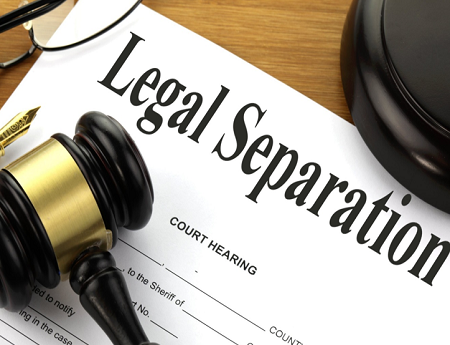A Discussion on the Differences Between Legal Separation and Divorce
 When a marriage begins to break down, the path forward isn’t always clear. For some couples, filing for divorce is the right decision. For others, legal separation offers an alternative that allows space and structure without officially ending the marriage. But what exactly is the difference between the two—and why does it matter?
When a marriage begins to break down, the path forward isn’t always clear. For some couples, filing for divorce is the right decision. For others, legal separation offers an alternative that allows space and structure without officially ending the marriage. But what exactly is the difference between the two—and why does it matter?
In San Diego, family law courts handle both divorce and legal separation proceedings, but the implications of each are quite different. Knowing what’s legally at stake can help you choose the right course of action, especially when financial assets, children, or long-term plans are involved.
If you’re unsure where to begin or which option makes the most sense for your situation, speaking with a qualified San Diego divorce attorney from Boyd Law can make all the difference. They bring clarity to what can often feel like an overwhelming and emotional process.
Let’s break down the key distinctions between legal separation and divorce—so you can make informed decisions that protect your rights, your finances, and your future.
What Is Legal Separation?
Legal separation is a formal agreement approved by the court that allows a married couple to live apart while remaining legally married. Unlike simply “taking a break,” legal separation involves filing paperwork and may include decisions on property division, child custody, and support.
The major benefit? Legal separation gives couples time and space without closing the door entirely on reconciliation. It’s also a practical choice for couples who can’t divorce due to religious beliefs, healthcare benefits, or immigration-related reasons.
However, it’s important to know that even with a legal separation, you are not free to remarry—because you’re still technically married in the eyes of the law.
What Is Divorce?
Divorce is the legal termination of a marriage. Once finalized, both individuals are legally single and free to remarry. Divorce proceedings cover the full range of legal issues, including division of marital assets, alimony, child custody, and support.
Unlike legal separation, divorce is final. It comes with tax, estate planning, and insurance implications, so it’s a decision that should never be made lightly.
But for many, especially those who are certain the marriage cannot be repaired, divorce provides closure and the ability to move forward independently.
Key Differences You Should Know
While both processes resolve many of the same issues—like child custody, spousal support, and asset division—the final outcome is what separates them:
* Legal status: Divorce legally ends a marriage; legal separation does not.
* Remarriage: Only possible after divorce.
* Healthcare and benefits: In some cases, legal separation allows one spouse to remain on the other’s health insurance.
* Religious or cultural reasons: Some couples opt for legal separation to respect personal beliefs while still setting legal boundaries.
Final Thoughts
Choosing between legal separation and divorce is a deeply personal decision that depends on emotional, financial, and practical factors. If you’re at a crossroads and don’t know what direction to take, getting expert legal advice is essential.
A skilled divorce attorney can walk you through both options, help you weigh the pros and cons, and ensure your rights are protected every step of the way. Whether you’re leaning toward legal separation or divorce, you don’t have to make the decision alone.